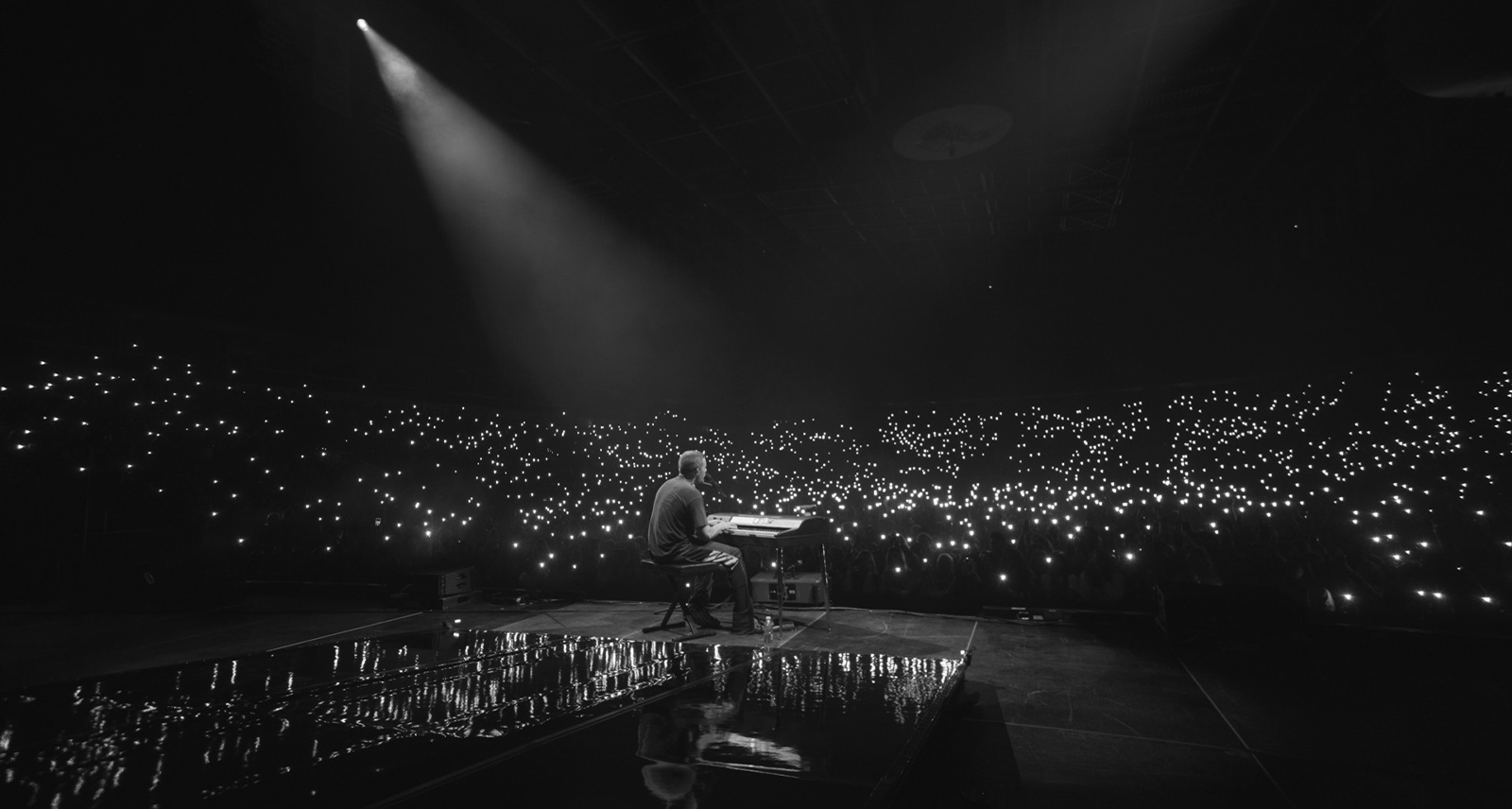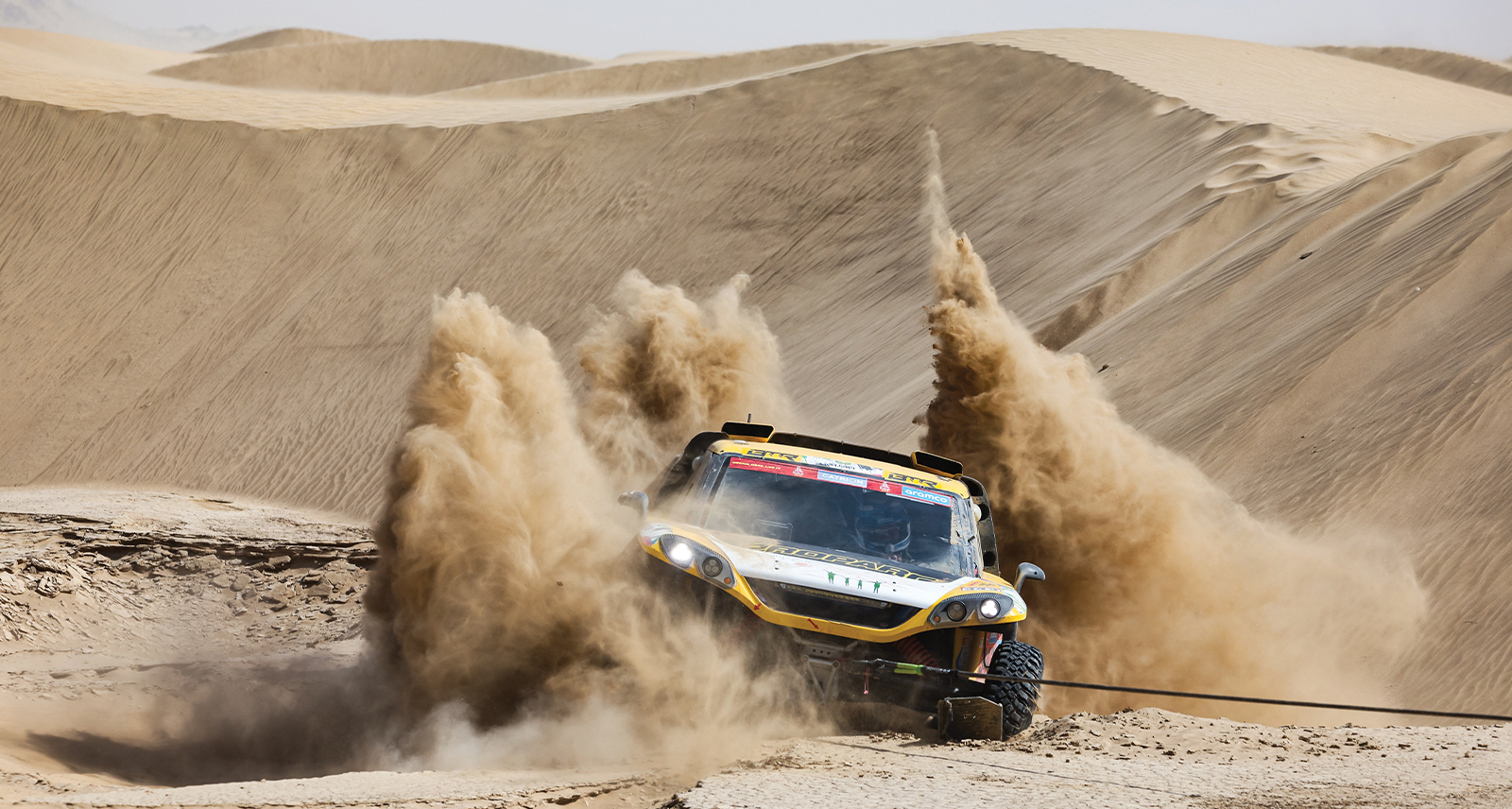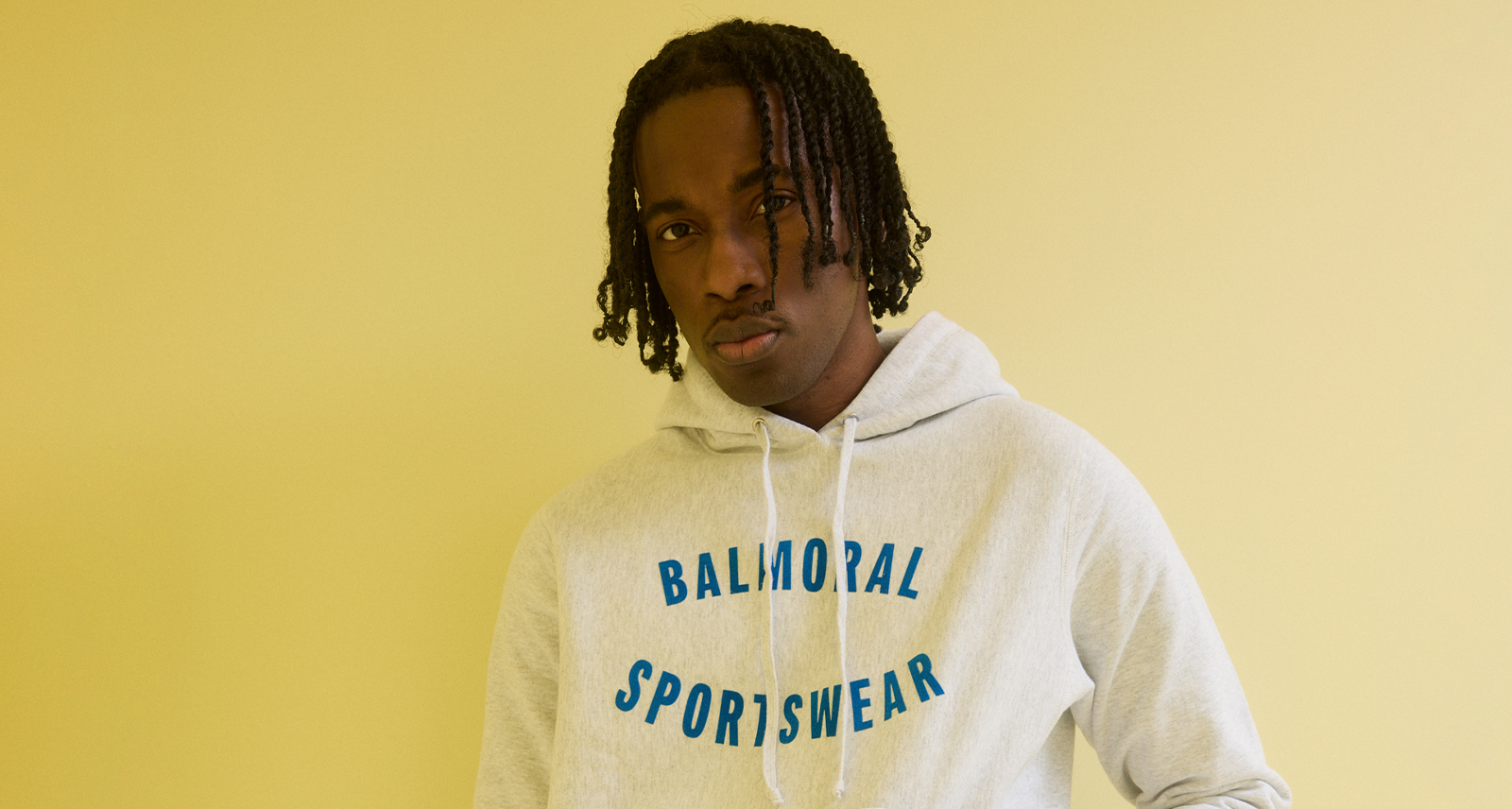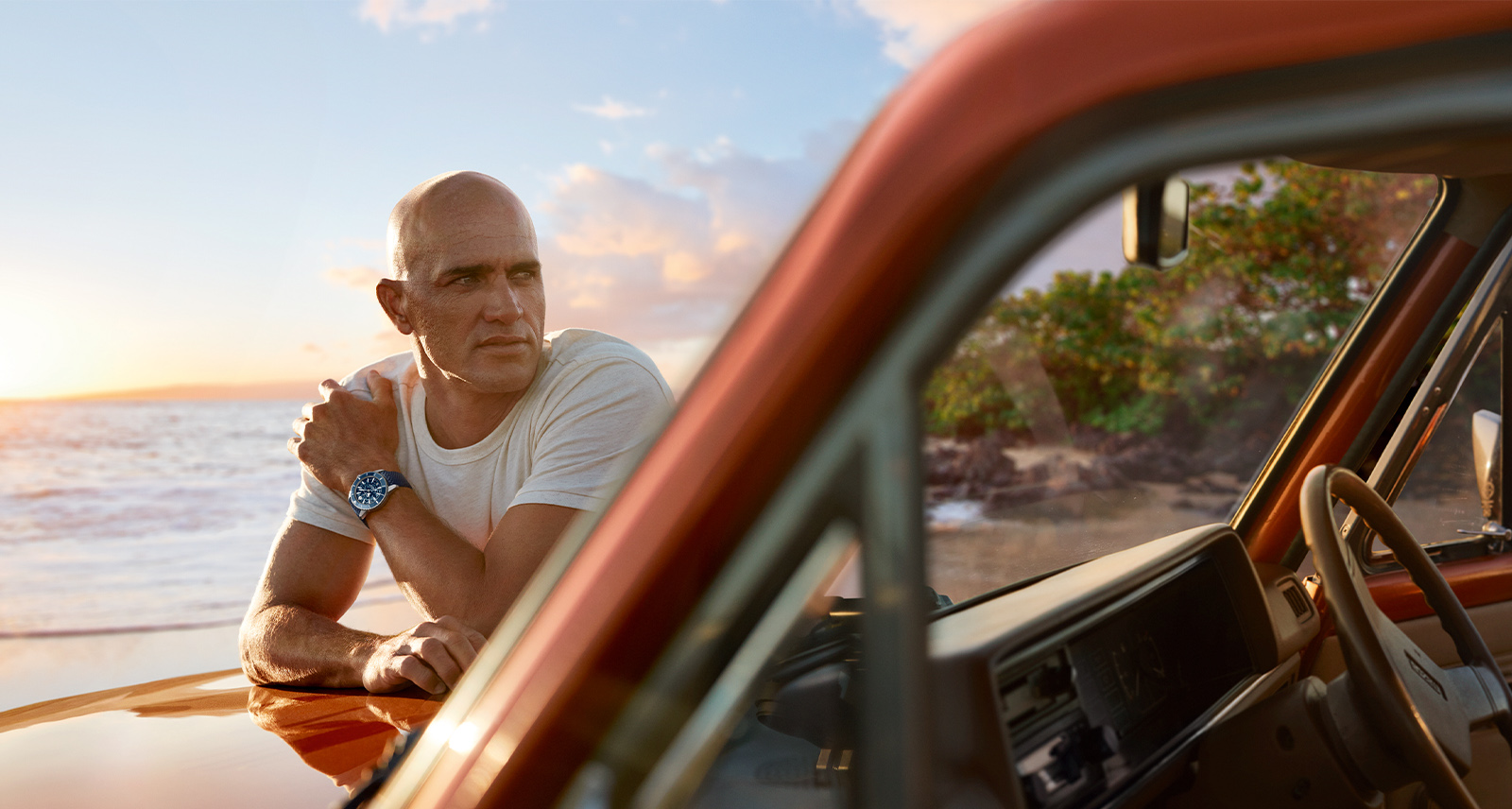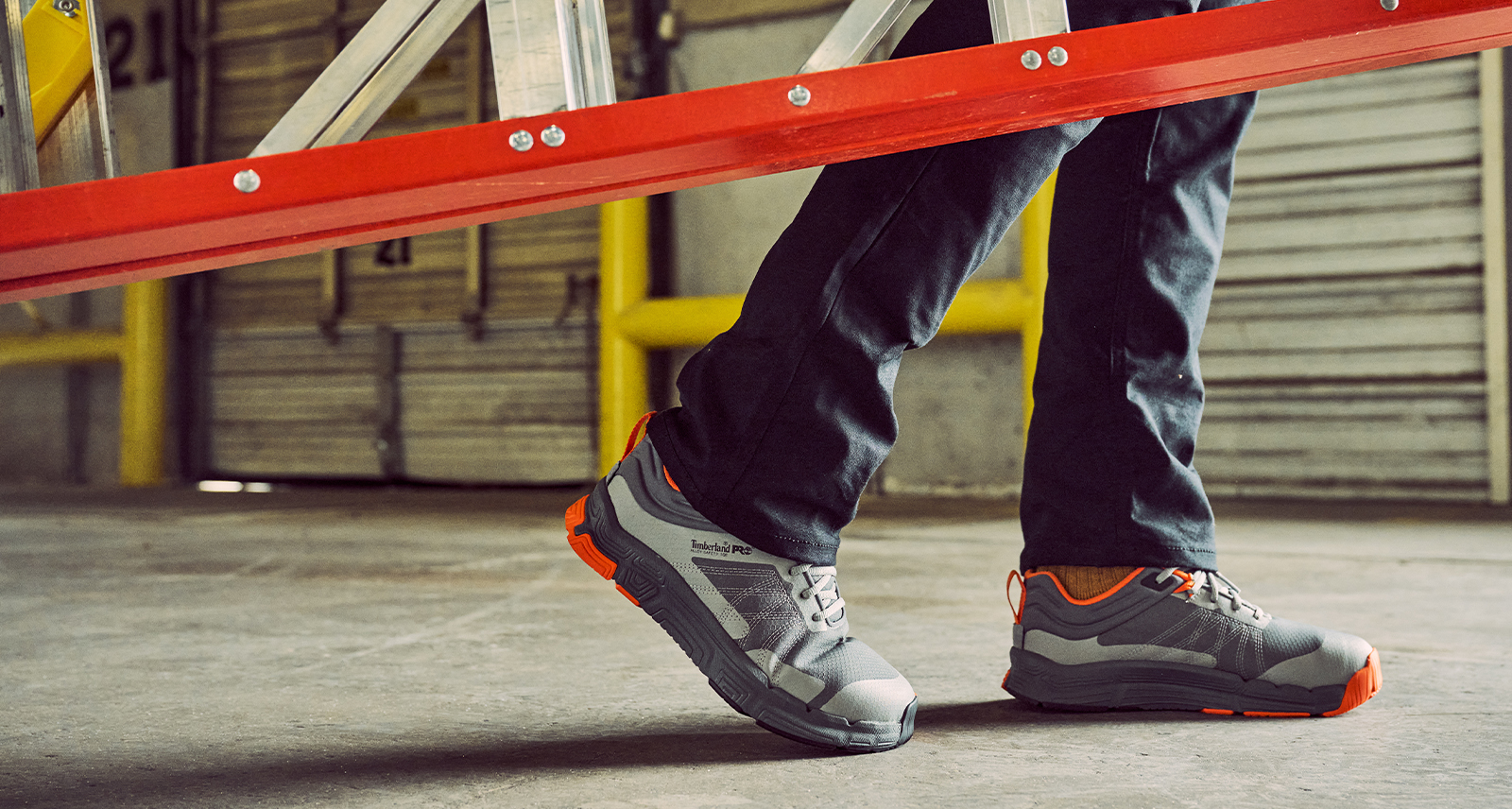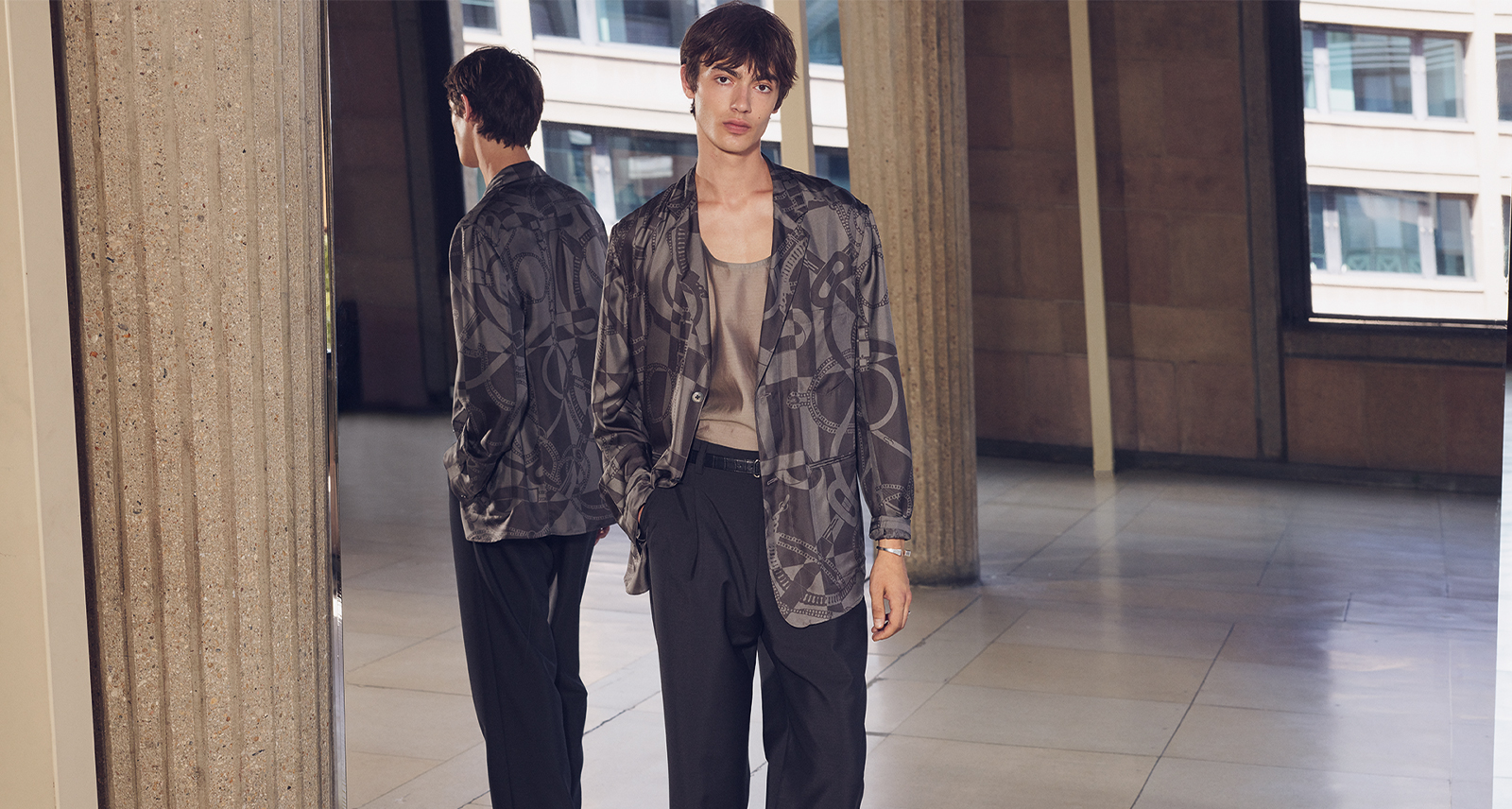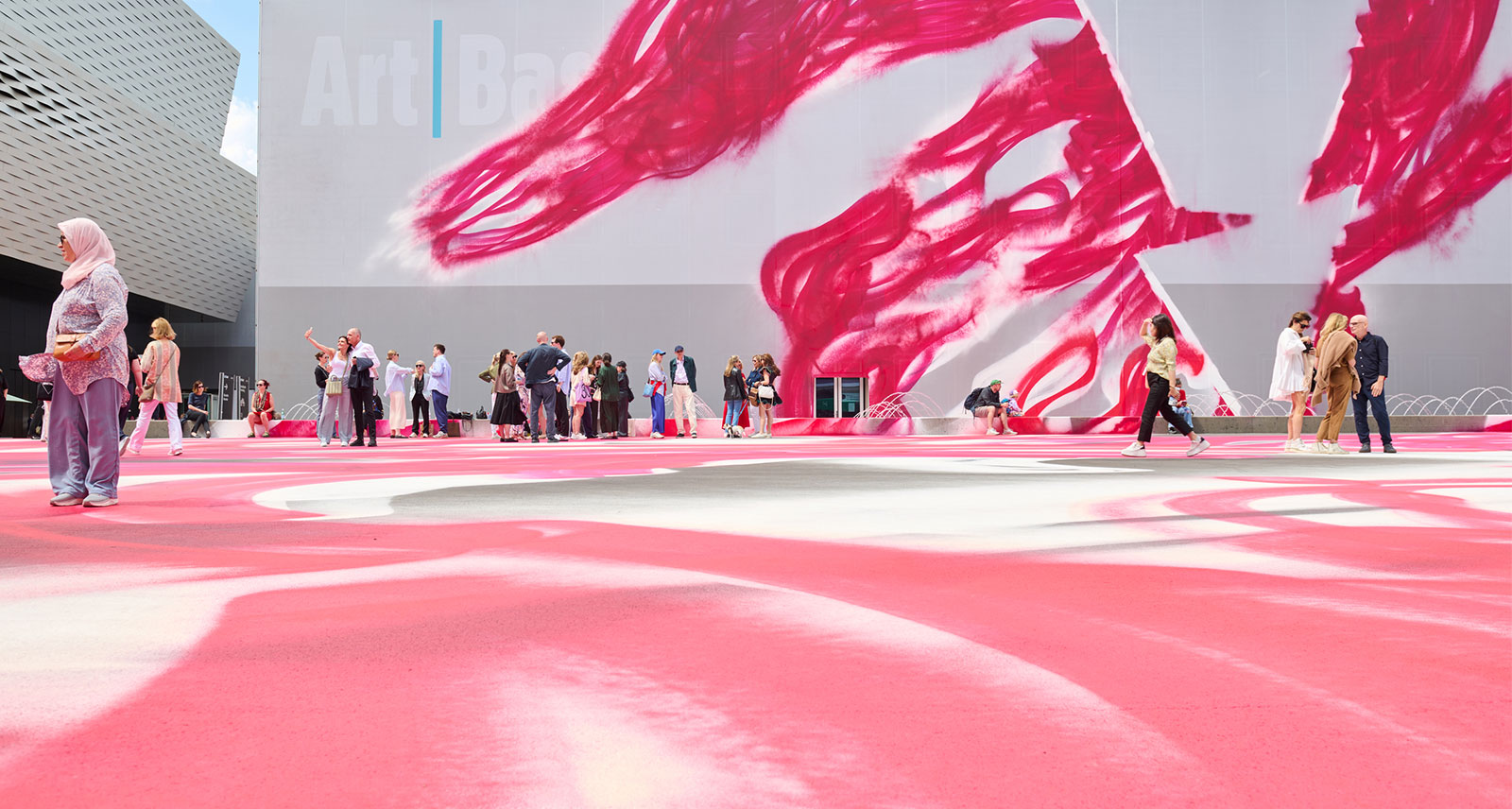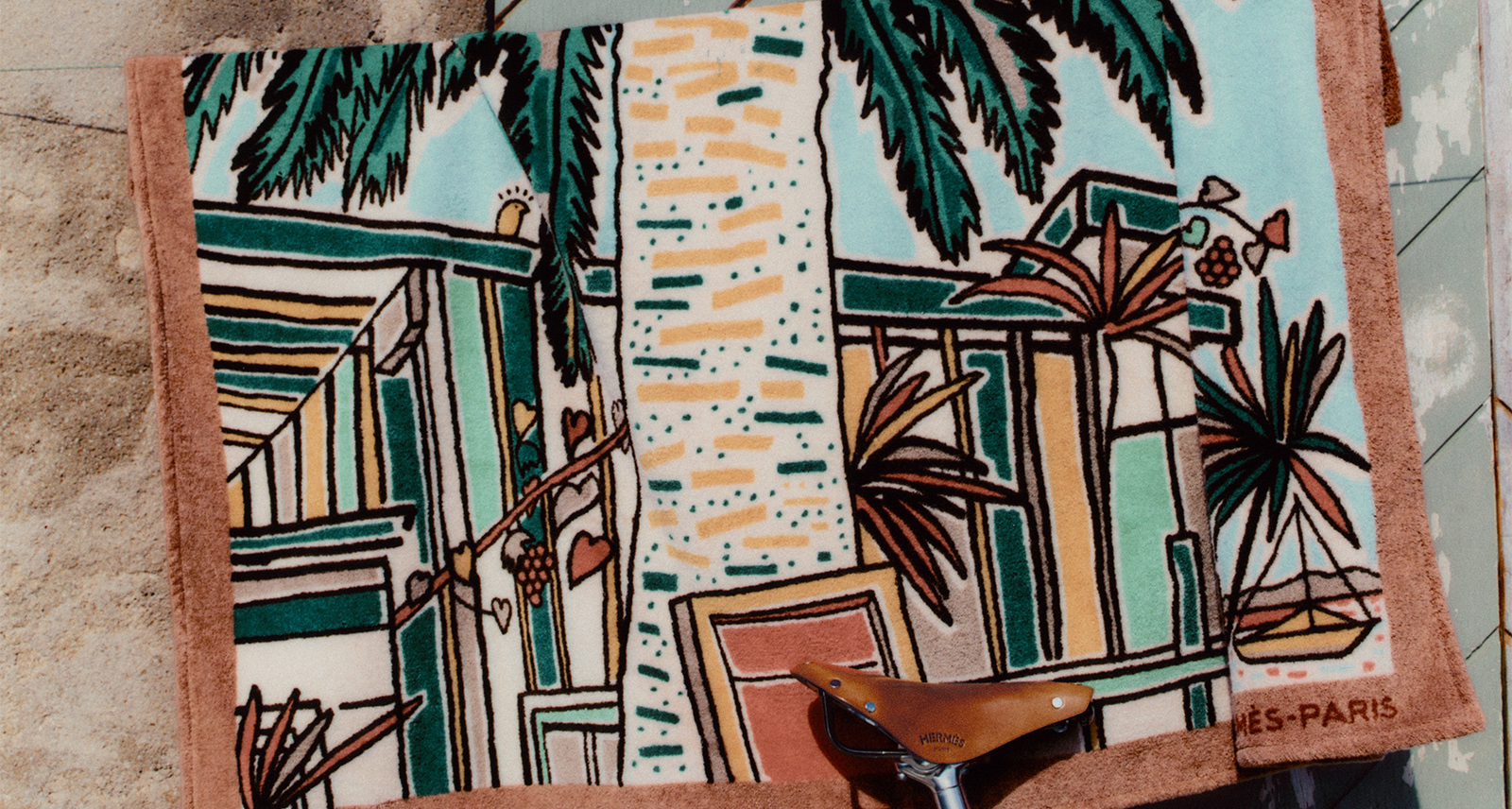Dermot Kennedy on Musical Inspirations, Creativity, & Next Album
Dermot Kennedy is a busy man — fresh off the release of his sophomore album, 2022’s Sonder, he’s blitzed across the world in a tour that spans from his native Europe, all the way through North America and Australia. He wasn’t always playing stadiums, though: Dermot Kennedy began his singing career a busker, singing cover songs on the crowded city streets of Dublin. It’s not an easy way to get your start in the industry; cobblestone charm aside, singing to strangers isn’t for the faint of heart. Yet, for Kennedy, winning people over is half the fun. Now, when he joins festival lineups, he relishes the chance to expand his audience: “you’re still trying to kind of grab their attention and hold it. I love that feeling, you know?”
In spite of his success, it’s musical growth that really makes Kennedy tick. The bottom line, as he put it, is “that I’m proud of what I’m making.” Speaking with the star moments before his Winnipeg show (he was strolling into soundcheck by the end of our call), I got the chance to learn about his creative process, dream collaborators, and what it means to sing — and write — about emotions. We talked about his musical inspirations, intuition in the recording studio, and the planning phases of his next project.
How’s the tour life treating you — have you been enjoying Canada?
I’ve been loving it, yeah. To be honest, the show’s been great, like, I’ve been blown away by how big [the crowds] are! Obviously, it’s quite a brief tour — it’s only six shows, but they’re all kind of these hockey arenas and it’s just, it’s cool to go to places that aren’t necessarily major-major cities, and still play to that many people. It’s been really exciting, and I need that, ’cause this tour’s been going on quite a while now. To be doing shows like this still, and enjoying it this much, that means a lot to me.
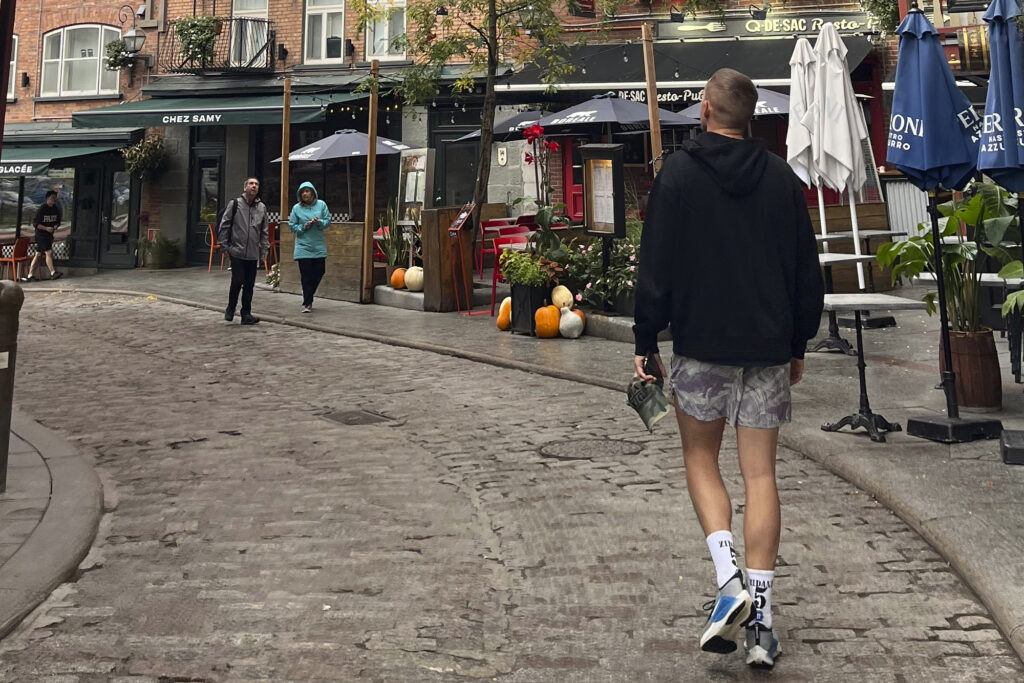
You started off with busking, and now you’re scheduled to play venues — big ones, like the Sydney Opera House. Do those experiences have anything in common?
Yeah, I mean… they do and they don’t, you know? The main thing in my career now that reminds me of busking is playing at festivals — because if we play the festival, there might be, like, X amount of people who actually know my music and are there to see me. But then there’s a lot of people who don’t know it and haven’t heard of me before. That feels a bit like busking in the sense that you’re still trying to win people over, and you’re still trying to kind of grab their attention and hold it. And I love that feeling.
The headline shows are different. To be honest, there’s a lot of ways in which it feels much easier than most. When you play at a show where people have already gotten tickets, you kind of feel like you’ve already won, you know what I mean?
I’ve listened to the album: it’s a mix of sounds, some songs have electronic vocal effects alongside more traditional folk elements like guitars. How is that mix of classic and contemporary for you?
It’s very important to me. Obviously, I started out in the more classic sense, in terms of just a guitar and a piano. But, I just, I don’t know — I think for example, Bon Iver is a huge influence for me, and not just in terms of me being influenced musically — he just showed me that you can have big arrangements and have, you know, certain effects on the music that don’t necessarily take away from the intimacy or the feeling and the amount of emotion you put across. I used to think it would, but in recent years I’ve realized you can have all these different arrangements, you can have all these different soundscapes, and keep that emotion as long as you’re careful.
With the second album, a lot of people talk to me about how it’s more upbeat, and it feels more “pop,” per se. But to me, it’s just what was exciting musically, you know? I felt more confident — as a musician — to try those things. It was a more enjoyable process than the first album; I mean, cause I felt more established as an artist.
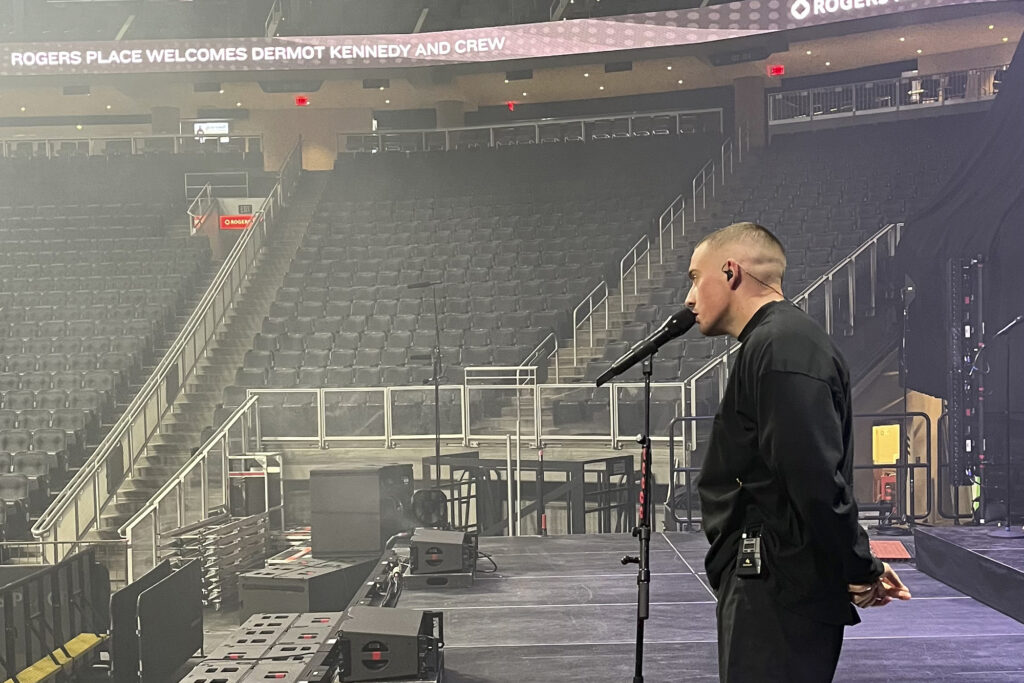
For sure, yeah. Some artists set out to make a specific type of record — an acoustic record or a dance record. Are you thinking about genre when you’re going into the studio, or are you going with the flow?
I think I’m more concerned about it now, going into whatever I do next. I think if I’m established now — to some degree — I feel like I have to cement that on the next project. For example, the first album I guess was kind of an acoustic-feeling thing, but then again, it’s not really. Sometimes, I find myself trying to describe the music I make and I use the words ‘acoustic’ and ‘singer-songwriter.’ But also, it’s not that, you know? There’s always been big arrangements, and if there’s one thing I’d like to be, it’s dynamic. There’s moments that are super intimate and acoustic, and other moments that are just huge.
Albums one and two have left us in a place where it feels quite open and I can do whatever I like. I’ll probably be more conscious of genre going into album three. To me, it feels like I want to strip it back and take a step back towards that classic feeling, where it’s just storytelling and that type of thing. But no, to be truthful: when I get in the studio, I don’t think too much about what kind of sound or genre I’m trying to touch on. It’s just like you said — you kinda go with it.
“The bottom line is just that you’re proud of it and that it feels good. If it’s successful, fantastic. If it’s not, that’s okay. The bottom line is that I’m proud of what I’m making.”
Dermot Kennedy
How do you decide what stays in the drafts and what’s going to go on the album — is there anything that you didn’t use for the second record that you would put on the third, or do you normally start from scratch? Tell me a bit about that process.
Yeah! There’s definitely stuff that doesn’t make it that might show up in the future — I think there’s a huge amount of variables, you know what I mean? Sometimes it’s literally just that you didn’t get it done in time. Sometimes it doesn’t feel right for that project — so many things to consider. I’ve got a couple of things coming that are literally just demos that didn’t make the second album, and it feels like they’re more appropriate for where I’m at now.
I think that’s important for me and other artists to remember these days — when you release something, you don’t live and die by it, you know? I think we’re lucky in the sense that we can release things quickly now; if you feel like releasing a song, just do it — there doesn’t have to be this grand sense of occasion, you don’t have to overthink. I’ve got a lot of demos and stuff that I’ve kind of held on to.
But I think we do just know, as well. I think sometimes, when you tell people you’ve written like 70 songs for a 10 song album, people wonder how you make that shortlist. I think truthfully, it’s quite clear-cut when you’re making the album — you know what needs to quote-unquote ‘exist’ on the project, and you know what isn’t right for it. In the studio, you have that feeling, and you know if it needs to see the light of day or not.
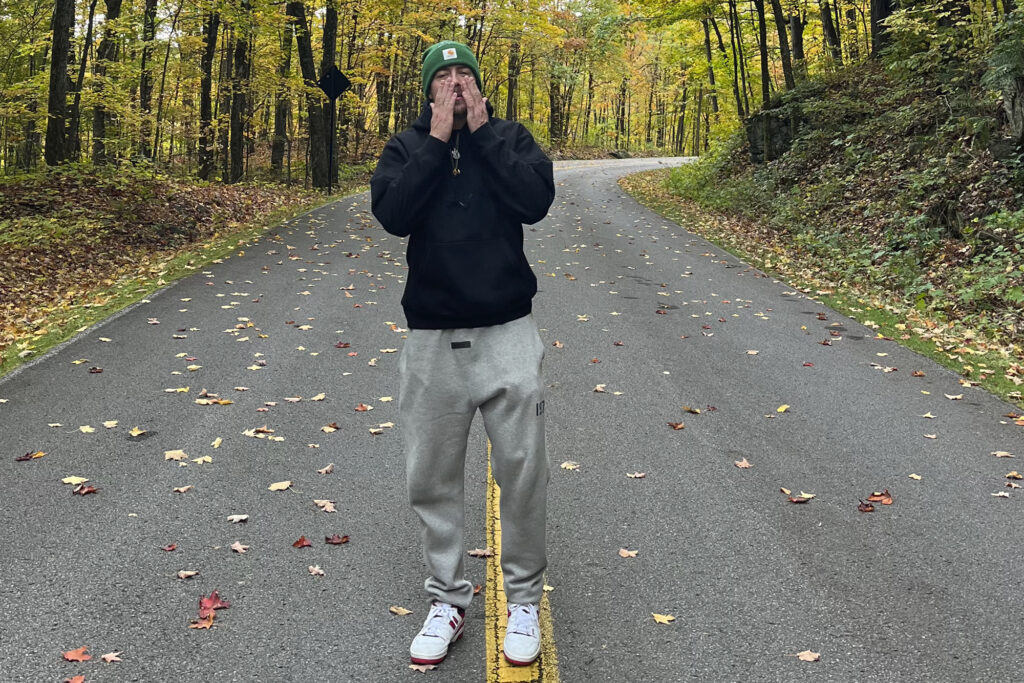
Before you started singing yourself, did you have ‘the ear’ or the ability to curate songs?
Yeah, I think so, but I think you go into the music industry with a certain degree of confidence. In that sense, you know you have a good ear. It takes a long time, I think, to realize that everybody’s just kind of gambling, you know what I mean? If someone thinks the song is successful, if it’s going to be, [if] it has potential, all that kind of stuff — everyone’s just guessing, ultimately. Sometimes, they have massive songs that no one’s going to predict, and so ultimately your guess is as good as anybody’s.
I think it took me until now to realize that my ear is as good as anybody’s, and I have that confidence back creatively — and also, to not really give a shit about how far a song can go. The bottom line is just that you’re proud of it and that it feels good. If it’s successful, fantastic. If it’s not, that’s okay. The bottom line is that I’m proud of what I’m making.
But I think I’ve always had a decent ear in terms of what I like and don’t like, to be honest. It’s that simple, right? It’s not about, like ‘oh, I need this type of song to be successful. I need this type of thing to do this.’ Ultimately, it’s just down to my own taste, and I should be making music that I would like to hear. It’s that simple.
Coming from Ireland, where there is such a big wealth of singer-songwriters who are known for lyrics and composition — like you’ve got Sinead O’Connor, Enya, Hozier — do you find that you’ve been influenced by the Irish music scene? Or, how is that expressed in what you’re doing?
Definitely, yeah, it pushes me forward; I think about artists like Sinead O’Connor. I think Hozier is a great example, because he went three to five years before me, and had the biggest song in the world. [He’s] incredibly inspirational, in terms of someone that has such a huge career, but always kept music as the most important thing, at the forefront of everything he does. You can tell it’s just the bottom line for him, you can tell that being a celebrity isn’t very high on his list. It’s just about making great music, and I find that very inspirational.
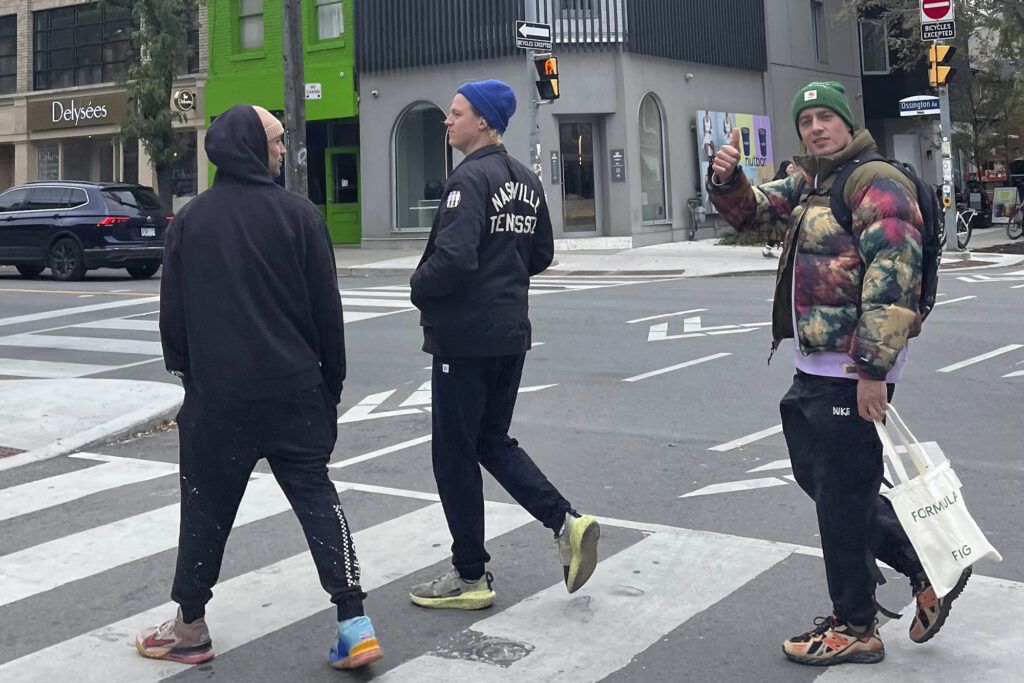
Do you have a dream collaborator?
I think so, yeah. I’ve got a couple. Like, I’ve got one that’s kind of in my lane, which would Bon Iver — to be in studio with him would be incredible. And then outside of that — like way outside the box — would be J. Cole. I think as an artist, as a lyricist, and just as a person, I find him very inspirational. So I would love that to be honest.
The album, Sonder, talks a lot about emotional growth after heartbreak. How does it feel, revisiting some of those more emotional songs? Do you find that they take on a new life once you’ve released them, or do you find yourself back in the headspace you were in recording and writing these songs?
Yeah, it can be tricky sometimes, you know, because you can feel exhausted on tour, right? And you can feel emotionally spent. And sometimes, you can be at a loss [as to] why, and you try and figure it out… but realistically — it’s just tiring, emotionally, to constantly be reliving your most intense memories, you know? Obviously, that’s what makes for a good show, and that’s what makes for compelling music, but it is tiring. Sometimes there’s certain things that I don’t want to think about; but if I sing those words, ultimately, those images come back into my head. And you know, it all balances out — I sing about the most beautiful things I’ve experienced as well.
I think that’s why I put so much weight behind these album releases; really, that’s where my head’s gonna be at for two or three years — it keeps me there. Whatever songs I release, and whatever they contain in terms of their emotion and their themes and everything, my head’s going to be there for quite a while, so I need to be sure of it.
“I write in such a way that it’s quite universal — people can feel it, and see themselves in it, and attach their own stories to it.”
Dermot Kennedy
In that vein — maybe it’s too early, I don’t know what your schedule is — but have you already had thoughts for your next direction? Will it take inspiration from the experiences you’ve had on tour, or is the recording process going to happen later?
It’ll happen later probably, but I feel eager to get in the studio, I feel eager to write and keep being creative. I don’t want a massive break from that. It’s tricky though, I’ve gotta figure out where these songs are gonna come from. Like, do I write about my childhood? Do I write about everything I experienced before this was a career? It’s that cliche thing — do I just sing about tour buses and hotels, because that’s been the vast majority of my life for the last while? So you do have to figure out where these sounds are gonna come from to be convincing and be compelling.
I’m also a huge hip-hop fan, and I find myself kind of envious, sometimes; in hip-hop, you can rap about your capabilities, and rap about how good you are, and all that stuff. In my genre, that’s not necessarily a thing — not that I want to kind of write about how good I think I am — but writing from a very personal space, I just want to figure that out, and get to the core of who I’m trying to be. I think the hip hop influence has always been there for me, but I want to figure out how that shows itself. I’m definitely not trying to do a bad version of rap music, I just want to figure out the degree to which that influences me and how it can show up in my own music.
You said you’re drawing on personal experiences in your music. But balancing that with a public-facing role, how do you find that, when you’re translating an intimate experience for a wide audience?
I think it’s kind of a balance, you know? Sometimes, I’ll have a cryptic lyric that is just for me and I don’t expect anyone to understand it. I don’t expect it to make sense to anyone, but I guess it’s luck. I write in such a way that lots of people can relate to.
I think about the fact that we’re playing big shows here in Canada, we’ve played big shows in the US and Europe, in the UK, we’re about to go to Australia as well, and do some big things there. I guess I’m just lucky in the sense that I write in such a way that it’s quite universal — people can feel it, and see themselves in it, and attach their own stories to it. I think that’s a very beautiful thing. I think it’s probably the thing that sustains me, the thing that keeps me going when I’m on the road, [when] I look into the crowd and see somebody experiencing it even more than I am. I think that’s a very, very powerful thing and that’s what gets me back into giving my best. When you see somebody on tour like that, they’re seeing it for the only time — and for maybe the first time — so you need to tell the story as convincingly as you can.
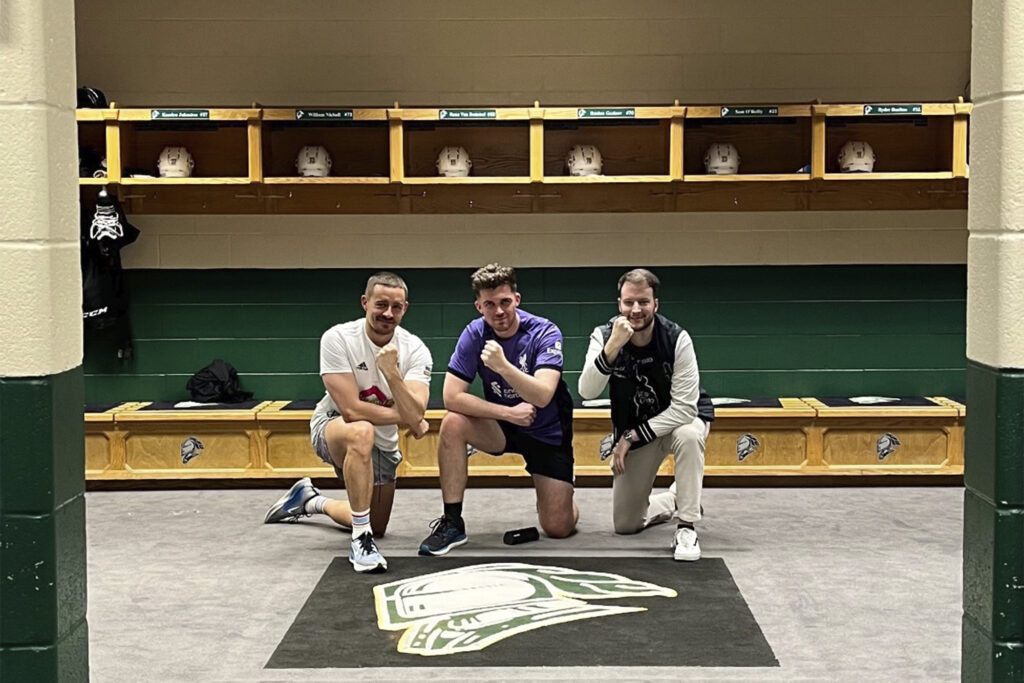
That was actually something I wanted to ask — why do you do it? Why do you sing, or who do you sing for?
That’s a good question! Laughs. No, it’s a good one — it’s like, I do ask myself that all the time — like, ‘what are you trying to achieve?’ You know what I mean? For me, it’s the creativity and the artistic side alongside this ambition.
I’m very ambitious in terms of my shows and in terms of my career. There’s not a lot of artists that make it outside of Ireland, and I’m very determined to not let that happen to me. I’m very determined to keep coming back, venues getting bigger, and all that kind of stuff. But then, you’ve got to figure out — and I think it’s the luxury of having any degree of success, it’s the luxury of being established to some degree — you get to figure out like, ‘what’s the best version of what I do?’
I was talking to somebody about it today: I was saying it’s all well and good, trying to build up the stadiums, and all that kind of thing, but… would I rather play three nights in a theatre, where we have an orchestra? Is that a more beautiful version of what I do? It’s something to think about.
But who do I sing for? I think what gives me energy, fuels me, and sustains me, is thinking about all my loved ones at home — friends and family. I’m very aware of the fact that everybody around me… we all have the same emotions. It just so happens that I sing about it and write about it. So I feel like I’m a voice for them, to some degree, and that keeps me going when I’m on tour. And, like I said, just people in the crowd, people I see, that are feeling it and have so much emotion. It’s multiple things.
You have a lyric, ‘one life is never enough.’ So, say you have more than one life. What else could you see yourself doing?
Sports — it would always be sports. I’m just about to walk into soundcheck now, and before that I was just playing soccer in the park nearby, and that definitely brings me a level of peace that I don’t necessarily get with music. It just gives me, total, total, comfort. Like, the only time my mind is empty is when I’m playing sports.
Well, thank you so much. I hope the show goes well tonight and and you have fun on the rest of your tour. It was really great to talk to you.
Nice one. Thank you very much!
Feature photo courtesy of Joel Stagg.
